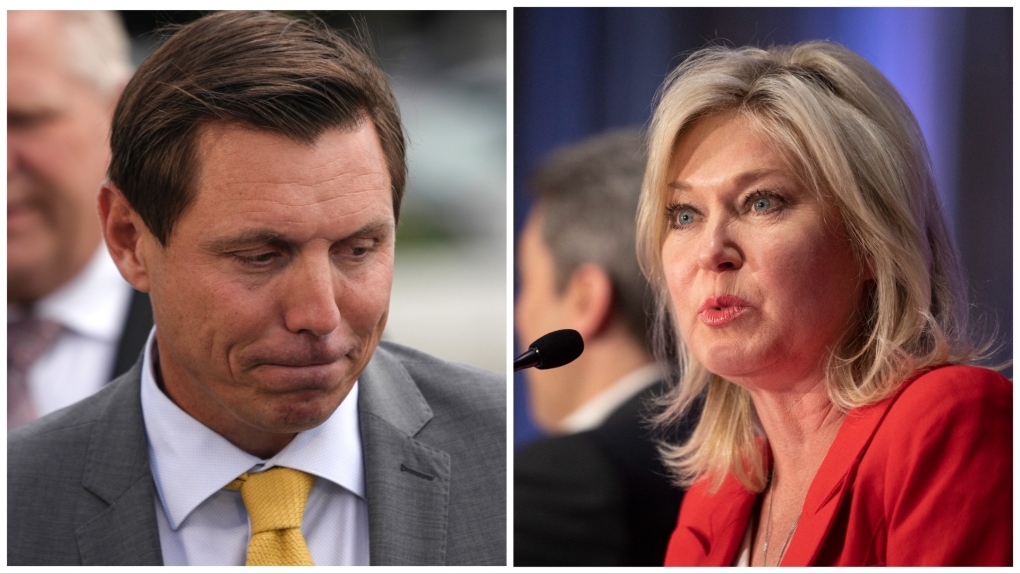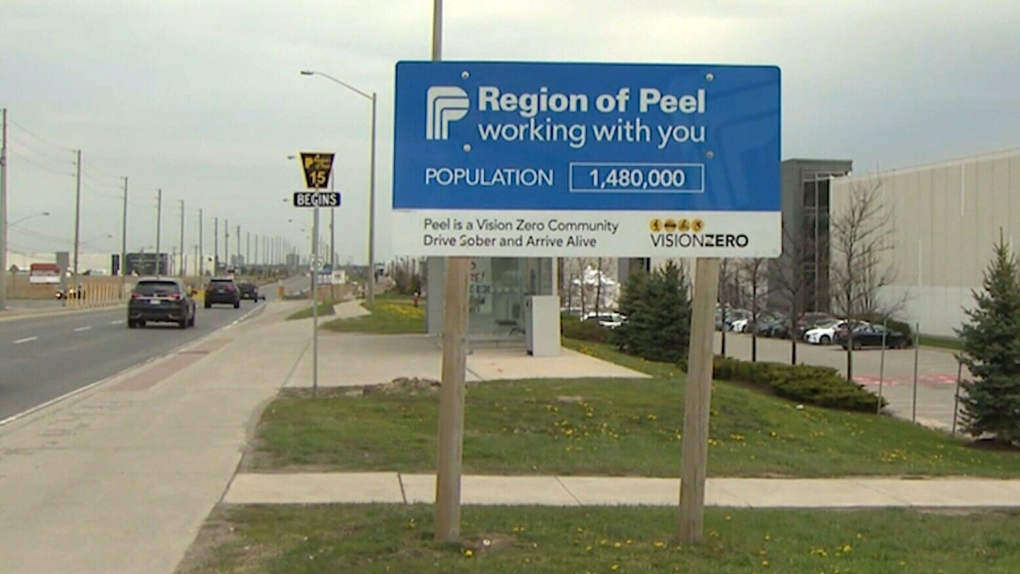This is what Peel Region separating means for Mississauga, Brampton, and Caledon
The Ontario government will dissolve the Region of Peel by 2025, making way for an independent Mississauga, Brampton and Caledon.
This is not a process that will occur overnight. The three municipalities that make up Peel—Brampton, Mississauga and Caledon—have shared core services and programs since 1974. While each city has its own members of government, Peel Region has an overarching council that helps govern economic growth and development.
So, how will this work? How do you separate three cities that are so intertwined?
This is what you need to know:
Why are we doing this?
Mississauga Mayor Bonnie Crombie, as well as her predecessor the late Hazel McCallion, has long advocated for an independent city. In 2019, Mississauga’s city council approved a motion to make it become, in principle, a “single-tier municipality, independent of the Region of Peel.”
At the time, the province promised to look into it and two financial impact reports were submitted to the region.
- Download our app to get local alerts on your device
- Get the latest local updates right to your inbox
Crombie has argued that separating from Peel would save taxpayers about $1 billion over the next decade and provide the city with control over its own “destiny,” like other large municipalities in Ontario.
More than 800,000 of the 1.4 million people in Peel Region reside in Mississauga.
"This is huge. This is historic for Mississauga," Crombie told Newstalk 1010’s Moore in the Morning on Thursday. "The time has come...Brampton is quite able and capable of standing on its own two feet."
Does everyone support this?
The short answer is no. Brampton Mayor Patrick Brown has said that while he approves of dissolving Peel in order to streamline governance for his city, he is concerned about the financial ramifications of the separation.
Brown told CP24 Wednesday that much of Peel Region’s infrastructure, including water treatment plants and emergency services such as police, are headquartered in Mississauga.
 Brampton Mayor Patrick Brown and Mississauga Mayor Bonnie Crombie are seen in these photographs. (The Canadian Press)
Brampton Mayor Patrick Brown and Mississauga Mayor Bonnie Crombie are seen in these photographs. (The Canadian Press)
“I'm not opposed to the principle of getting rid of the Region of Peel. My contention has been that if Mississauga wants to leave and have a divorce that they have to pay the bill,” he said, noting that Mississauga would owe Brampton between $1 and $2 billion so that they could build infrastructure of their own.
For Crombie’s part, she said she “can’t imagine how the numbers would indicate” that Mississauga owes Brampton any money, an assessment Brown called "alarming" in a follow up interview.
“But if it proves that, so be it. I mean, this is so important to us to stand on our own two feet and control the future of Mississauga. We're going to do the right thing,” she said Thursday.
What about Caledon?
Caledon Mayor Annette Groves told reporters Thursday that she didn’t want to leave Peel Region.
“We've always maintained a position that we felt that the region has worked really well. It isn't something that we wanted,” she said, noting that her city is the “child” in the divorce of Brampton and Mississauga.
On Wednesday evening, Groves told CTV News Toronto that she had yet to be briefed about the impending split. But in January 2025, her city will become independent whether it’s her wish or not.
What happens to those shared services?
This is also unclear and will be a topic of discussion for the provincial transition board, which is set to provide recommendations in the summer or fall of 2024.
The list of shared services is extensive and includes paramedic services, health programs, long-term care and services for seniors, child-care support, garbage collection and recycling, water and water treatment, road maintenance, as well as housing and shelter.
It's likely that each municipality will have to create the infrastructure to offer these services to their own residents, something that could be a timely and costly process. It is also possible that some broad services such as water treatment or police could remain regionally operated.
How will government change?
Each municipality has a mayor and a city council. The Region of Peel also has a council consisting of 24 members with a Regional Chair.

Legislation will dictate what happens, but likely the regional council will simply dissolve, leaving each municipality’s council to conduct daily business.
Can we afford to do this?
At this time, we don’t know what the true financial ramifications of this change will be. All three municipalities contribute a significant amount of their revenue towards Peel Region, which goes towards paying for core services as well as staff and programming.
Brampton provides nearly 40 per cent of revenue collected in taxes while Mississauga contributes 45 per cent.
Brown has said that Premier Doug Ford promised that Brampton wouldn’t get “shafted” in the separation and that Brampton would “remain whole.” It’s unclear if this means the province will foot the bill during this time of transition.
When will this happen?
The government has said that Peel Region will officially dissolve in 2025, ahead of the October 2026 municipal elections.
A transition board of up to five people will be set up sometime this year to oversee the process. At that time, the province may introduce further legislation to address any other issues.
CTVNews.ca Top Stories

Donald Trump says Canada becoming 51st U.S. state 'a great idea'
U.S. President-elect Donald Trump is taking aim at Canada once more, saying it would be 'a great idea' to make it America's ‘51st state.'
After scamming their victims, some con artists go on to scam our courts with impunity
Convicts, including fraudsters, are skipping out on their court-ordered payments to their victims to the tune of tens of millions of dollars across the country, according to figures obtained by CTV W5.
The barriers and benefits as a global bank looks to branch out in Canada
It's not every day, or even every decade, that a big foreign bank decides to have a go at Canada's retail banking market. But Spain's Banco Santander is poised to be among the few that have tried as it nears the all-clear to expand in Canada.
Ryan Reynolds among new appointments to Order of Canada
Ryan Reynolds, Scott Oake and Maureen Ann Jennings are among the 88 new recipients of the Order of Canada.
Canadian government announces new border security plan amid Donald Trump tariff threats
The federal government has laid out a five-pillared approach to boosting border security, though it doesn't include specifics about where and how the $1.3-billion funding package earmarked in the fall economic statement will be allocated.
Nissan, Honda confirm talks on closer collaboration but say there's been no decision on a merger
Japanese automakers Nissan Motor Corp. and Honda Motor Co. confirmed Wednesday that they are discussing closer collaboration but denied reports they have decided on a merger.
Verdicts are due in the historic French rape trial that turned Gisele Pelicot into a feminist hero
French judges plan to deliver hugely anticipated verdicts this week in a historic drugging-and-rape trial that has turned the victim, Gisele Pelicot, into a feminist hero.
2 B.C. police officers charged with sexual assault
Two officers with a Vancouver Island police department have been charged with the sexual assault of a "vulnerable" woman, authorities announced Tuesday.
B.C. teacher disciplined for refusing to let student use bathroom
A teacher who refused to let a student use the bathroom in a B.C. school has been disciplined by the province's professional regulator.
































